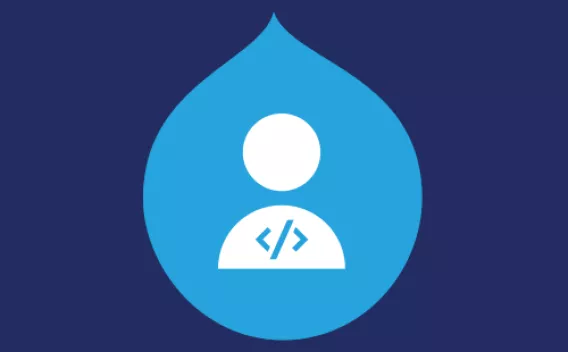
Last time, we discussed some big themes your Drupal 8 team should be synched up with, like object-oriented programming. Now we're going to drill down into more specifics on the technical side.
Is your tech team full of generalists, or do all your developers have special skill sets and focus on specific kinds of functionality, like databases or communications? Either way, someone on your team will have to fill each of these technical roles for a successful Drupal 8 project.
Drupal 8 Architect
More than anyone else on the project, the Drupal 8 architect needs to understand Drupal 8 in depth. The architect needs to make the decisions about the project's overall architecture, which requires envisioning how the system works as a whole. This is bigger than just the Drupal 8 application, because the project needs to fit into your company's entire software environment. It may need to be integrated with other corporate back-end systems, so this role needs to understand the full technical environment, not just the tech stack that comes with Drupal 8. As much as possible, this individual needs to have a strong understanding of front-end and back-end development tools in addition to a thorough understanding of how Drupal 8 works.
UI Designer
The UI designer needs to understand what the technology is capable of and how to use it to create the best experience for end users. To work with Drupal 8, the UI designer should keep building HTML, CSS and Javascript knowledge, but also develop a Drupal 8-specific understanding of how to create themes and build sites. Learning the capabilities of Twig is needed because Twig replaces PHPTemplate in the new version of Drupal. Instead of .tpl.php files, .html.twig files are needed.
Front-End Developer
All that stuff the UI designer promised the business? It's the front-end developer's job to turn that hypothetical design into a functioning interface. Like the UI designer, front end developers should enhance their knowledge of HTML, CSS and Javascript, and pick up knowledge of Twig. PHP knowledge will help also; so will knowing MySQL. The front-end developer will also want a Drupal 8-specific understanding of how to create themes and build sites, as well as how to develop custom modules and address Drupal 8 performance and Drupal 8 security concerns.
Back-End Developer
Clicking on website front-end elements does nothing until you implement the functionality in the back-end. You need to be able to write new functionality from scratch, building on existing components when possible. When the application needs to integrate with other systems, the back-end developer writes the code that hooks it all together into a system that functions seamlessly. This role needs some knowledge of front-end tools like HTML, CSS and JavaScript, but it also requires understanding back-end tools like PHP and MySQL in depth. For Drupal 8 knowledge, the back-end developer should focus on architecture and planning topics as well as how to develop custom modules and address Drupal 8 performance and Drupal 8 security concerns.
Marketing Technical Lead
The marketing technical lead owns the content publishing process. She defines the procedure for publishing content and makes sure it adheres to site standards. Because content doesn't accomplish anything unless someone sees it, the marketing technical lead needs to make sure it follows good SEO and SEM practices. It's important that the marketing tech lead keeps current with ever-changing SEO practices, and focuses on learning Drupal 8 as a content management system. Learning about the administration functions, and the kinds of changes you can make that won't require a developer to write code, will be especially useful for this role.
Next time: Non-Technical Team Roles and Required Skills for a Drupal 8 Project.





